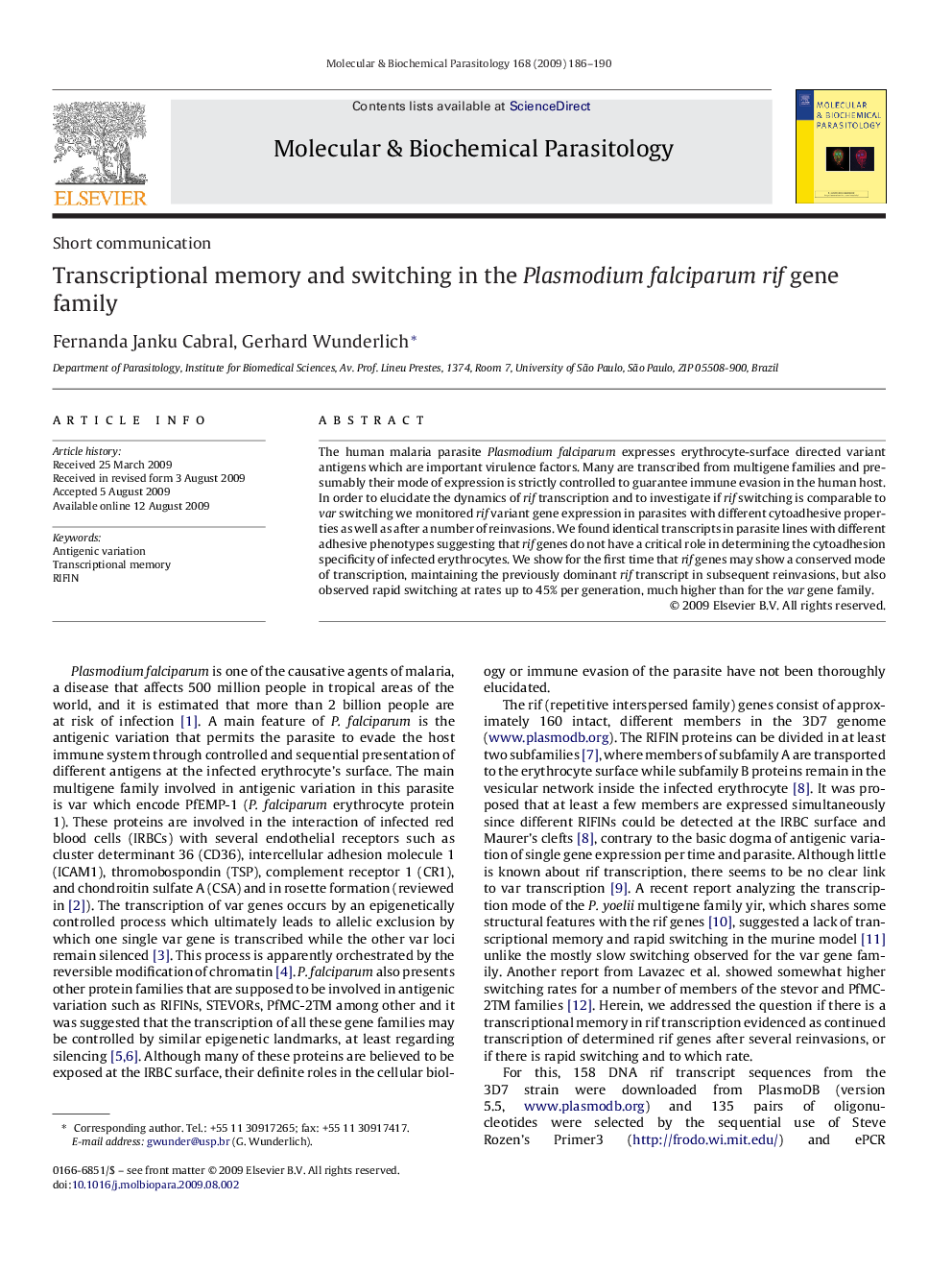| Article ID | Journal | Published Year | Pages | File Type |
|---|---|---|---|---|
| 5915879 | Molecular and Biochemical Parasitology | 2009 | 5 Pages |
Abstract
The human malaria parasite Plasmodium falciparum expresses erythrocyte-surface directed variant antigens which are important virulence factors. Many are transcribed from multigene families and presumably their mode of expression is strictly controlled to guarantee immune evasion in the human host. In order to elucidate the dynamics of rif transcription and to investigate if rif switching is comparable to var switching we monitored rif variant gene expression in parasites with different cytoadhesive properties as well as after a number of reinvasions. We found identical transcripts in parasite lines with different adhesive phenotypes suggesting that rif genes do not have a critical role in determining the cytoadhesion specificity of infected erythrocytes. We show for the first time that rif genes may show a conserved mode of transcription, maintaining the previously dominant rif transcript in subsequent reinvasions, but also observed rapid switching at rates up to 45% per generation, much higher than for the var gene family.
Related Topics
Life Sciences
Biochemistry, Genetics and Molecular Biology
Molecular Biology
Authors
Fernanda Janku Cabral, Gerhard Wunderlich,
